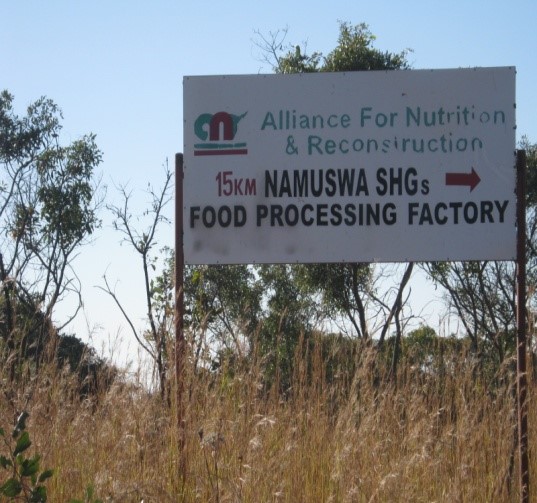
Farming Practices - Ripping
The onsite training session on conservation farming practices focused on the technique of ripping, an essential component of soil conservation and enhancement. Ripping involves the use of machinery to break up compacted soil layers, allowing for improved water infiltration and root penetration.

Farming Practices - Potholing
The onsite training session on conservation farming practices centered on the technique of potholing, a key method for enhancing soil health and promoting sustainable agriculture. Potholing involves the digging of small pits or holes in the soil to improve water infiltration, reduce runoff, and enhance nutrient uptake by crops.

Intercropping Legumes & Cereal Crops
Intercropping legumes and cereal crops is a sustainable farming practice that offers numerous benefits, particularly in terms of soil conservation. This method involves planting legumes (such as beans, peas, or lentils) alongside cereal crops (such as maize, wheat, or sorghum) in the same field.

Raising Tree Seedlings Of Sesbarnia Seban
Raising tree seedlings of Sesbania sesban, commonly known as Sesban or Egyptian Rattlepod, is a valuable practice for various agroforestry and reforestation purposes. Sesbania sesban is a fast-growing, nitrogen-fixing tree species that thrives in a range of environments, making it suitable for a variety of agroecosystems.

Oyster Mushroom Growing
Oyster mushroom cultivation is increasingly promoted as a sustainable practice that can provide both nutritional benefits and income generation opportunities for individuals and communities. Oyster mushrooms (Pleurotus spp.) are popular for their delicious taste, nutritional value, and relatively easy cultivation requirements, making them an ideal choice for small-scale growers.

Beekeeping
Promoting beekeeping as a means to protect local forests is a strategic approach that not only benefits the environment but also uplifts communities. As bee populations thrive in healthy forests, their role in pollination becomes more pronounced, benefiting the ecosystem.

Food Processing, Preservation & Value Addition
To control food wastage during times of abundance and alleviate hunger in lean months, communities are encouraged to dry foods for future use. This practice helps preserve food, ensuring a stable food supply throughout the year. Surplus dried foods can be packaged and sold in urban markets, generating income for households.

Fish Farming
Promoting fish farming for both sustenance and economic gain is a commendable initiative, particularly in communities like Namaanza in Masuku ward, where perennial streams offer an ideal environment for such activities. By leveraging these natural resources, you're not only enhancing household nutrition but also creating opportunities for increased income through the sale of fish and vegetables.

Income Generation
ANR's promotion of the marketing and sale of processed food products, including oyster mushrooms, demonstrates a commitment to adding value to agricultural produce. By encouraging the processing and marketing of these products, ANR not only helps to increase the income of farmers and communities but also promotes food security and entrepreneurship.
